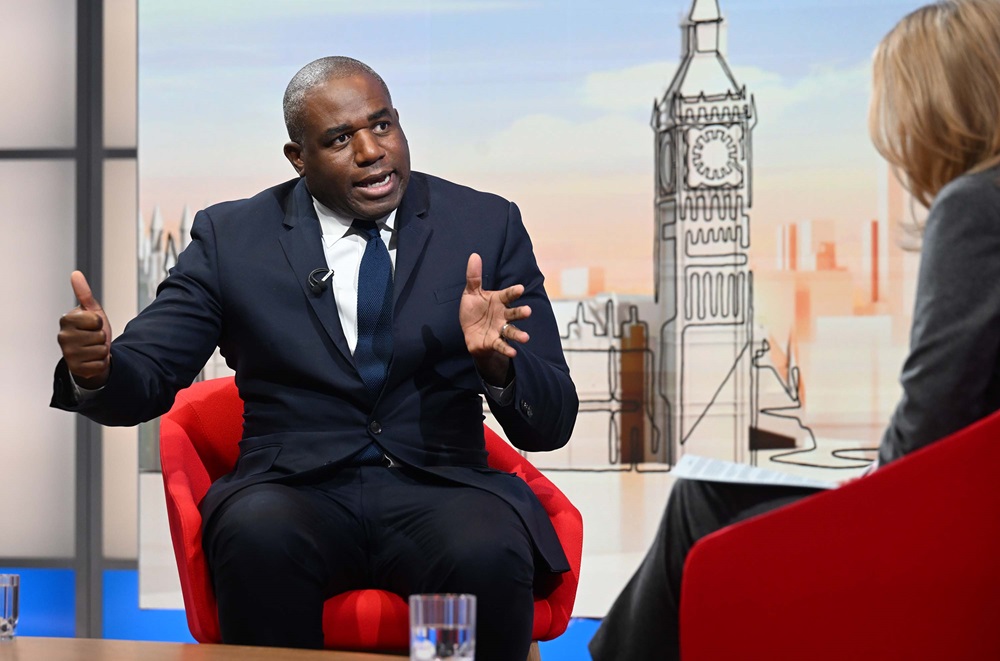
UK Foreign Secretary David Lammy has emphasized that discussions surrounding reparations for countries impacted by slavery should not solely focus on financial compensation. His remarks follow a recent statement signed by 56 Commonwealth leaders advocating for a broader conversation about reparations. In an interview with the BBC, Lammy clarified that the debate is more complex than simply transferring cash.
The UK government has previously dismissed the idea of paying reparations for slavery, indicating that its stance includes considering “other forms of non-financial reparatory justice.” Lammy highlighted the importance of building relationships with African nations through initiatives focused on skill sharing and scientific collaboration. He pointed out that this approach is particularly relevant during the ongoing cost of living crisis affecting many.
Reparations typically aim to address historical injustices and can include both financial compensation and symbolic gestures. Caribbean nations have proposed a comprehensive ten-point plan for reparatory justice, which calls for a formal apology, educational programs, healthcare improvements, and direct monetary payments.
Speaking in Lagos, a city historically significant in the transatlantic slave trade, Lammy acknowledged the profound scars left by this dark chapter in history. “I am the descendant of enslaved people, so I recognize that,” he stated. He reiterated the importance of acknowledging past wrongs and praised the formal apology issued by the Labour government during its last term in office. While the UK has never officially apologized for its involvement in the slave trade, former Prime Minister Tony Blair did express regret in 2007, stating, “We are sorry. And I say it again now.”
The role of the British government and monarchy in the slave trade, which persisted from the 1500s, cannot be overlooked, especially as Britain also played a crucial role in abolishing the trade with the passage of the Slavery Abolition Act in 1833.
Lammy’s comments come on the heels of discussions about reparations held at a recent Commonwealth leaders’ summit in Samoa. Amid rising calls from heads of government within the Commonwealth for reparations due to the UK’s historical role in the slave trade, Downing Street has maintained that this issue will not be up for negotiation. Nevertheless, Sir Keir Starmer, the leader of the Labour Party, later signed a document alongside other Commonwealth leaders advocating for talks on “reparatory justice,” although he noted that financial reparations were not part of the discussions.
Lammy expressed his belief that developing nations could greatly benefit from initiatives involving the transfer of technical skills and scientific knowledge from the UK. His current trip includes visits to Nigeria and South Africa, two of Africa’s largest economies. During this visit, he emphasized the need for a “new approach to Africa,” proposing a five-month consultation period with African nations to strengthen partnerships.
He observed that the focus of UK relations with Africa had shifted over the years, primarily centering on development during the last Labour government. “What I’ve heard is that the UK has stepped back somewhat over the last few years,” Lammy noted, indicating a desire for a more proactive and collaborative relationship moving forward.
In addition to reparations discussions, Lammy addressed other pressing issues related to Africa, particularly the ongoing conflict in Sudan. He expressed deep concern over the humanitarian crisis there, describing the loss of life as “unbelievable and outstrips other conflicts around the world.” He plans to prioritize Sudan during the UK’s upcoming rotational presidency of the United Nations Security Council in November, advocating for international attention and action to address the crisis.
Lammy’s remarks reflect a broader commitment to redefining the UK’s role in Africa, promoting partnerships that go beyond financial transactions to encompass shared knowledge and collaborative efforts. As discussions about reparations continue, the emphasis appears to be shifting towards creating meaningful, long-term relationships that address historical injustices while also tackling contemporary challenges facing the continent.







